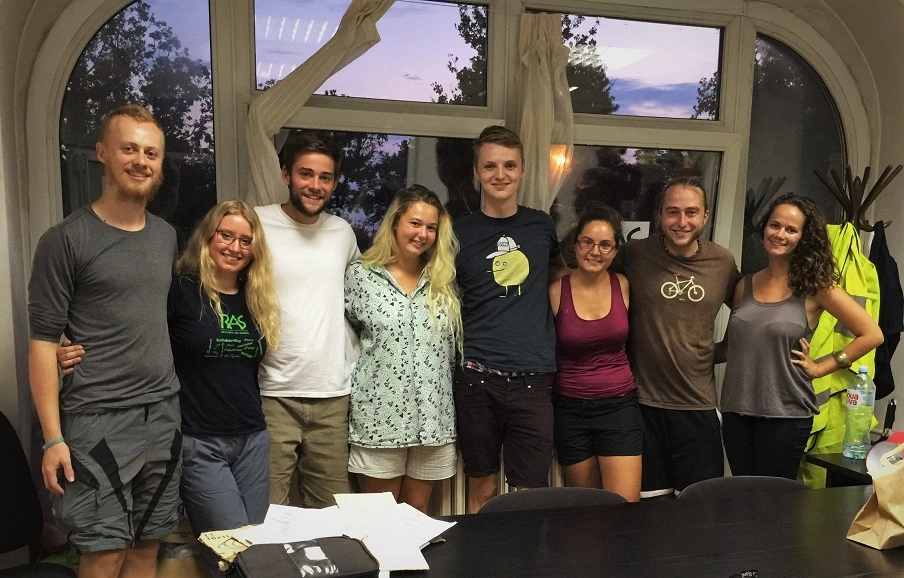 My review of Mona Siddiqui’s absorbing book appears in this month’s Third Way magazine.
My review of Mona Siddiqui’s absorbing book appears in this month’s Third Way magazine.
Amid an escalating refugee crisis, a tangle of wars in the Middle East and the presence of Muslims in Europe called into question, a clear, humane study of hospitality and Islam by Professor Mona Siddiqui has arrived as if to order.
How are we to respond, as a nation, as religious communities or as individuals, to pictures of Syrians making their way by boat and on foot to the safety of Europe? Nearer home, how do we get to know one another in towns and cities which include people from many cultures and religious traditions? How do we live well together while remaining true to ourselves? Furthermore, what do Muslims themselves draw on when considering these questions?
Both Christians and Muslims may find a position on the political spectrum, but Mona Siddiqui digs deep, exploring the transformative power of hospitality and bringing theology and action together in this thoughtful and captivating book.
A British Muslim who arrived in this country as a small child, she interleaves learning and analysis with her own experiences of hospitality: the little boy who befriended her as an Urdu-speaking four-year-old in the school playground; cooking for family and guests at home; more recently, an offer of chocolate cake at work. This book springs as much from personal reflection as from academic enquiry and, as anyone who has heard her contributions to Thought for the Day will recognise, there is a briskness as well as warmth in her style.
Although Derrida and Lévinas and their influential work on boundaries, identity and ‘the other’ are acknowledged, the book is primarily concerned with the theological underpinnings of hospitality. The author considers Biblical texts and Christian theology, including Nostra Aetate, as well as verses from the Qur’an and Islamic thought.
Within Islam, concepts of hospitality are mentioned in the Qur’an initially as divine commands, something that human beings should do to and for each other. Coming into contact with the stranger and the traveller is a way of living which engages with the world and highlights human diversity.
 Rublev’s icon of Abraham’s three guests in the Genesis story, and referred to in the letter to the Hebrews, is familiar to many and often understood as a depiction of the Holy Trinity. I have a reproduction in my study. The story of Abraham’s guests also appears in the Qur’an. For Christians, the extra place at the table and the possibility of welcoming angels, or even Christ himself, in the guise of the stranger has been a powerful influence, particularly in the Celtic tradition. The Rule of St Benedict includes hospitality among its five practices.
Rublev’s icon of Abraham’s three guests in the Genesis story, and referred to in the letter to the Hebrews, is familiar to many and often understood as a depiction of the Holy Trinity. I have a reproduction in my study. The story of Abraham’s guests also appears in the Qur’an. For Christians, the extra place at the table and the possibility of welcoming angels, or even Christ himself, in the guise of the stranger has been a powerful influence, particularly in the Celtic tradition. The Rule of St Benedict includes hospitality among its five practices.
Mona Siddiqui is no romantic when it comes to hospitality. It is demanding, whether in a domestic setting or within international politics, and should not be confused with entertainment. She notes that Muslim scholars encourage hospitality but also set limits. She is clear that ‘hospitality is real, not an ideal’. Showing dignity and care towards those we do not know, to nameless strangers, demands that we make our lives visible to others and are aware of society around us.
 This last year has seen people filling boxes and black bags with food and clothing, hiring vans and heading to the migrant camp at Calais. Others have flown to the Greek islands to volunteer on the beaches to welcome the thousands arriving in dinghies. People from churches and Islamic centres have been involved, sometimes combining forces. Giving money for humanitarian relief is seen as vital but not enough; there is a strong desire to make a meaningful connection and to offer direct support. At the same time, borders have been closed and fences erected to prevent the flow of migrants to northern Europe. The international response remains disjointed and uncertain.
This last year has seen people filling boxes and black bags with food and clothing, hiring vans and heading to the migrant camp at Calais. Others have flown to the Greek islands to volunteer on the beaches to welcome the thousands arriving in dinghies. People from churches and Islamic centres have been involved, sometimes combining forces. Giving money for humanitarian relief is seen as vital but not enough; there is a strong desire to make a meaningful connection and to offer direct support. At the same time, borders have been closed and fences erected to prevent the flow of migrants to northern Europe. The international response remains disjointed and uncertain.
As part of her undergraduate studies, the young Mona Siddiqui travelled from Leeds to Cairo and arrived at her lodgings. ‘I stood there with my new suitcase and my new expectations and looked around anxious and curious at the dust, animals and poverty.’ A young mother squatting nearby got up, found a piece of cardboard, dusted it down and placed it on the doorstep for her to sit on.
Simple acts of welcoming, of acknowledging the stranger and of recognising their humanity are rarely forgotten.
Globalisation and large-scale migration have, says the author, created a different challenge: fractured societies where we struggle to recreate familiarity, a sense of belonging and a sense of community. ‘Who we choose to get to know, have as friends, matters and says something about our cultural and political attitudes as well as our emotional and intellectual desires.’
 Visit My Mosque Day is a recent initiative, inviting local people to meet their Muslim neighbours. The Christian Muslim Forum’s church-mosque twinning initiative encourages religious leaders to get to know each other and to visit each other’s homes. ‘The spiritual journey in any faith is hard and demands stillness, solitude, prayer and reflection. Hospitality for the most part requires conversation, people and movement. It is a drawing in as well as a reaching out.’
Visit My Mosque Day is a recent initiative, inviting local people to meet their Muslim neighbours. The Christian Muslim Forum’s church-mosque twinning initiative encourages religious leaders to get to know each other and to visit each other’s homes. ‘The spiritual journey in any faith is hard and demands stillness, solitude, prayer and reflection. Hospitality for the most part requires conversation, people and movement. It is a drawing in as well as a reaching out.’
Those who live in vicarages and manses know only too well how demanding it can be as a place of hospitality. Guests meet wagging dogs, step over boots and sometimes catch the smell of home cooking. It is an entirely different experience from visiting the same person in an office.
One of the chapters in this wide-ranging and absorbing book looks at hospitality within the context of relationships between men and women, Islamic and western feminism, marriage, modesty and sex.
Mona Siddiqui’s Christian readers will certainly learn more about Islam, but they may also reflect more deeply on the hospitality of their own tradition and how it can bring hope to the most desperate situations.





